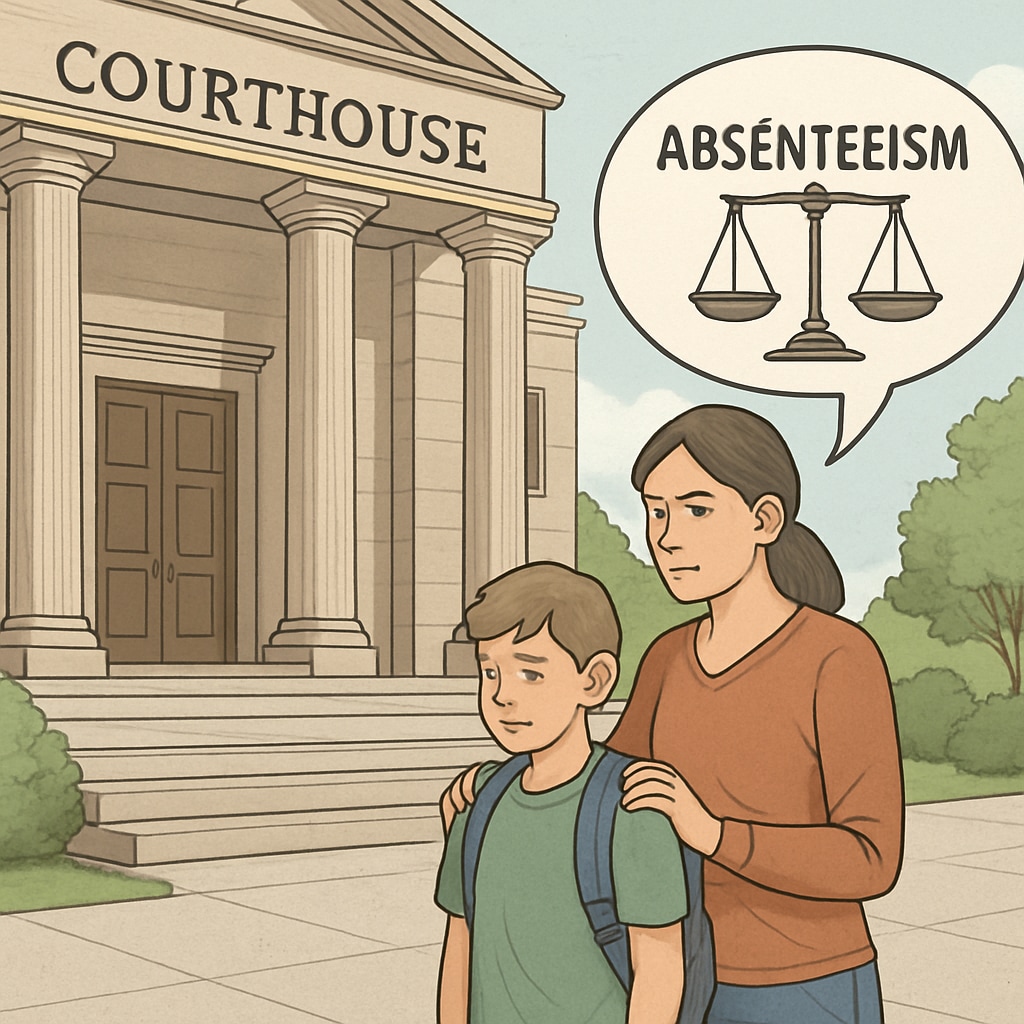Strict attendance policies, often enacted to combat absenteeism, have become a staple in K-12 education. While the intent behind such measures is to ensure student accountability and academic success, their implementation may sometimes stray from the educational mission. In some instances, these policies overlap with legal interventions, creating a rigid system that prioritizes compliance over understanding. This article critically examines the consequences of overly stringent attendance policies and advocates for a more compassionate, student-centered approach to managing absenteeism.
The Unintended Consequences of Strict Attendance Policies
Attendance policies in schools are often designed with the best intentions: to reduce absenteeism and promote consistent learning. However, when these policies lean heavily on punitive measures, they risk alienating students rather than engaging them. For example, students facing personal hardships such as mental health struggles or family crises may find the rigidity of such systems overwhelming. Punishments like detention, grade penalties, or even legal actions can exacerbate these issues, pushing students further away from the educational environment.
Moreover, research indicates that a purely punitive approach often fails to address the root causes of absenteeism. Factors such as socioeconomic challenges, bullying, or undiagnosed learning disabilities are often overlooked in favor of enforcing attendance rules. According to a report from Britannica, compulsory education laws were initially designed to ensure equal access to education. However, their modern-day application sometimes veers toward enforcement rather than support.

Attendance Policies and Legal Interventions: A Questionable Alliance
The intersection of attendance policies with legal systems is another area of concern. In some jurisdictions, chronic absenteeism is treated as a legal offense, with parents and students facing fines or court appearances. While this approach aims to underline the importance of education, it often backfires by adding stress to already vulnerable families.
For instance, families dealing with financial instability may find it challenging to prioritize school attendance over immediate survival needs. Legal penalties, instead of acting as a deterrent, can deepen these struggles. A study from Wikipedia highlights that truancy laws, while well-meaning, often fail to consider the diverse circumstances that lead to absenteeism.

Building a More Student-Centered Attendance System
To address absenteeism effectively, schools and policymakers must shift their focus from punishment to understanding and support. A student-centered approach involves identifying the underlying reasons for absenteeism and tailoring solutions to individual needs. For example:
- Early Intervention Programs: Schools can create systems to identify students at risk of chronic absenteeism and provide targeted support such as counseling or mentorship.
- Flexible Attendance Policies: Allowing for more flexibility in attendance can accommodate students facing legitimate challenges, such as health issues or family responsibilities.
- Community Engagement: Partnering with families and community organizations can address the broader socioeconomic factors contributing to absenteeism.
By focusing on the root causes and offering tailored support, schools can create an environment where students feel motivated to attend rather than forced.
Conclusion: Rethinking the Purpose of Attendance Policies
Attendance policies should serve as a framework for encouraging consistent participation in education, not as a tool for punishment. When these policies become overly strict, they risk undermining the very goals they aim to achieve. By adopting a more humane and student-focused approach, schools can address absenteeism while fostering a supportive and inclusive learning environment.
In the end, education is not merely about compliance; it is about growth, understanding, and preparing students for a successful future. A balanced approach to attendance policies can ensure that no student is left behind—not out of fear of punishment, but because they feel valued and supported.
Readability guidance: The article uses short paragraphs and lists to summarize key points. Overly long sentences and passive voice are avoided, and transition words are used to maintain coherence. The focus remains on actionable insights and a critical analysis of current policies.


